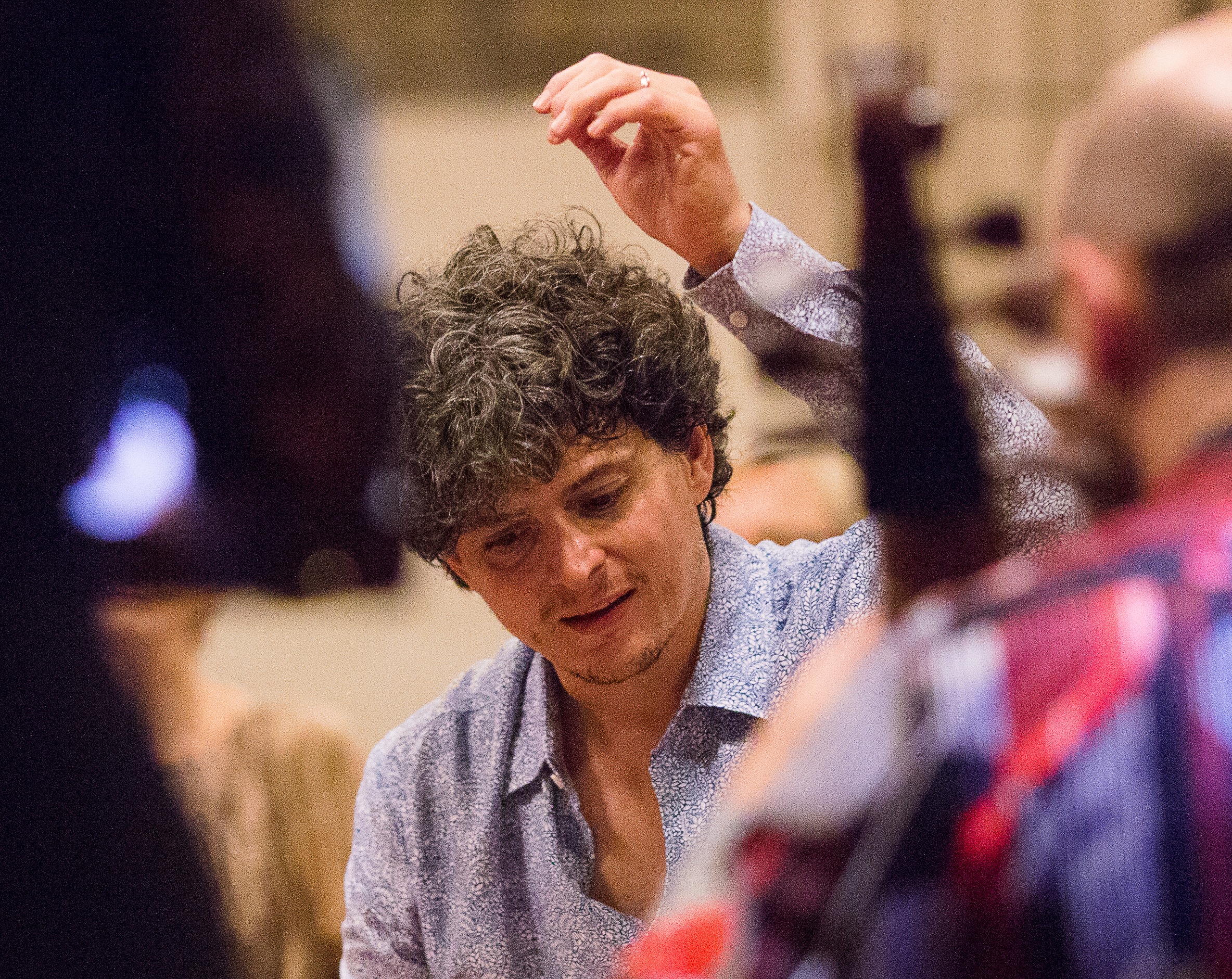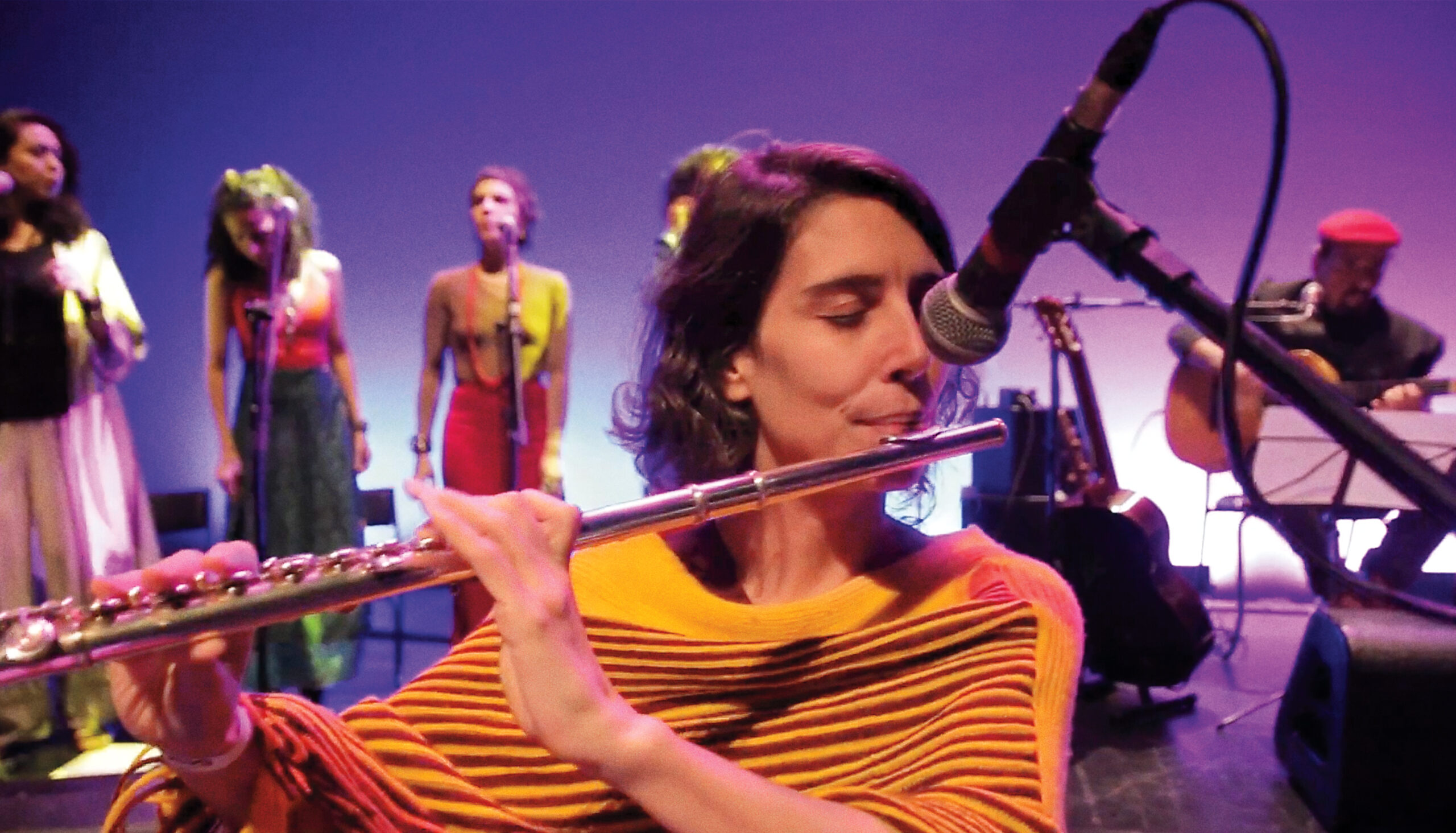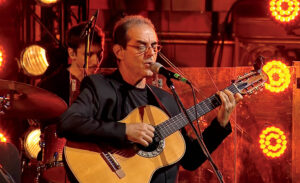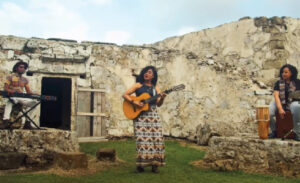This article is adapted from AQ’s special report on the 2024 U.S. presidential election and its impact on Latin America

Flautas Gigantes
by Orlando “Maraca” Valle y el Big Band
The first track on this big band- and small guitar-focused playlist, “Mambísimo” starts with a piano bass line and percussion, as any Latin jazz piece may. Next, we would expect trumpets, saxes and trombones to join them, with perhaps a flute or two. This, however, is no ordinary salsa big band, but Flautas Gigantes, a group created by Orlando Valle, a Cuban flutist with a long career in his country’s jazz world, including the supergroup Irakere in the 1980s. What makes this big band special is that, besides the usual rhythm section (piano, bass and percussion), it is made up exclusively of flutes, big and small, with over sixty flutists participating on the album. The result is swinging Cuban jazz filtered through the flutes’ liquid sound, at once light and solid, with some acrobatic solos.
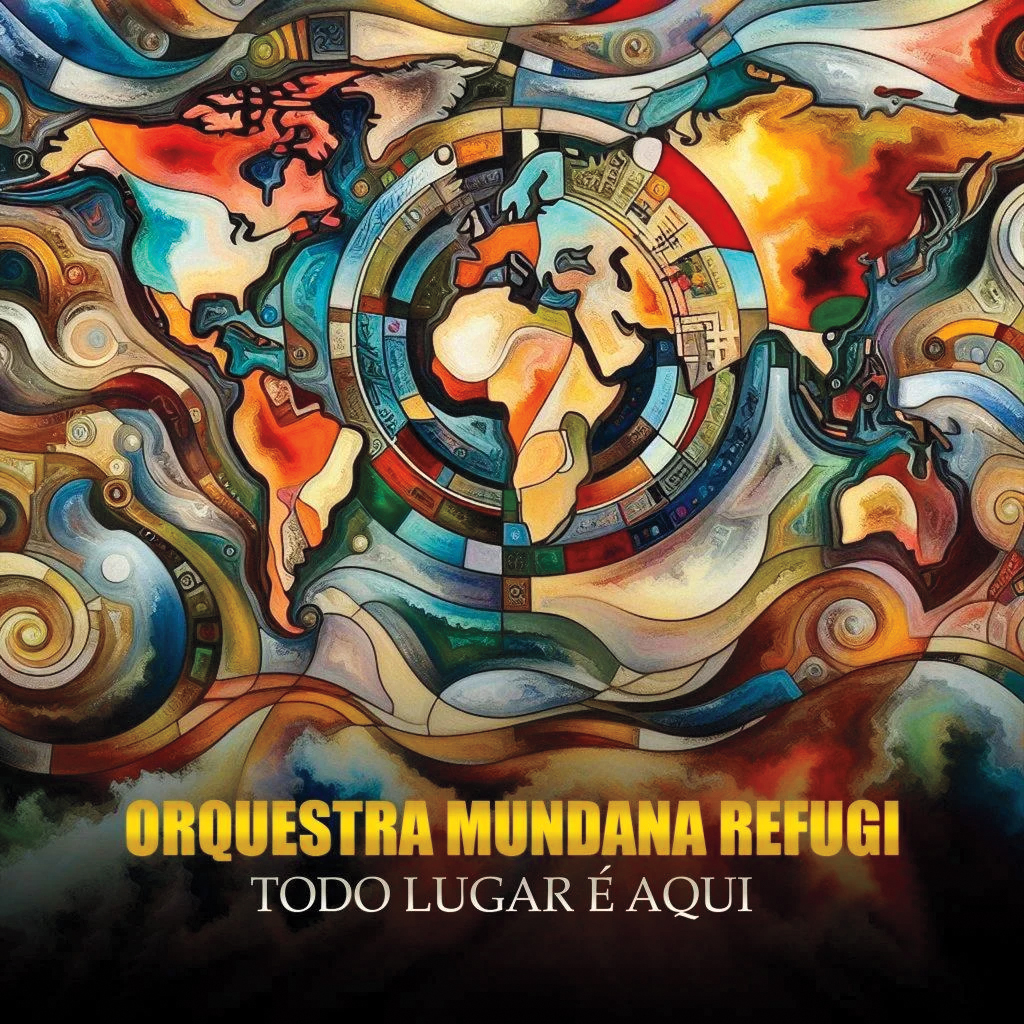
Todo lugar é aqui
by Orquestra Mundana Refugi
The Orquestra Mundana Refugi was founded in São Paulo by musician Carlinhos Antunes and social worker Cleo Miranda in 2017, aiming to create opportunities and a community for refugee musicians, and now includes 22 musicians from 11 countries. The project, started at São Paulo’s SESC cultural center, features a variety of instruments and music-making traditions, and collaborates regularly with established Brazilian musicians such as Badi Assad (on their latest single) and Adriana Calcanhotto. They launched their third album, Todo lugar é aqui, in January, with songs in a smorgasbord of musical styles from around the world. “Batarsite” is an anthem of Réunionese identity by Danyèl Waro, whose title, a word developed by the author, encapsulates the island’s rich creole culture. OMR’s version adds a new layer to its cross-cultural message, flowing over pulsing Afro-Brazilian percussion and big band sounds (with saxes and brass this time).
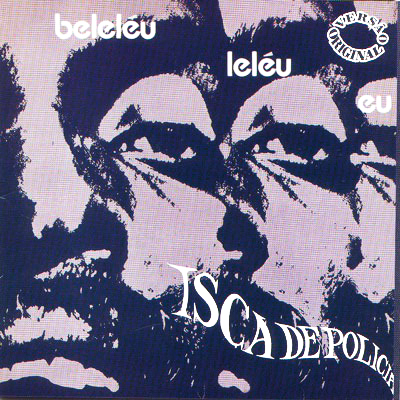
Beleléu leléu eu
by Itamar Assumpção
Itamar Assumpção was one of the leading figures of the Vanguarda Paulista, a movement of independent artists that flourished in São Paulo toward the end of the military dictatorship in the 1980s, centered around the independent label and theater Lira Paulistana. Assumpção released just a handful of albums between 1980 and his death in 2003. His music, especially in his debut Beleléu leléu eu, is a mysteriously restrained and lyrical minimalist funk, like in “Fico louco,” a love song built over a reggae-inspired guitar, in which Assumpção’s voice is in a dialogue with a chorus that contributes doo-wop and jarring interventions. The adjective “minimalist” means different things applied to different art forms—in this case, it means that the mix (the relative volume of the instruments and voices in the song) foregrounds one element at a time: first the organ melody, which gives way to the guitar, which in turn is replaced by the chorus to finish the introduction.
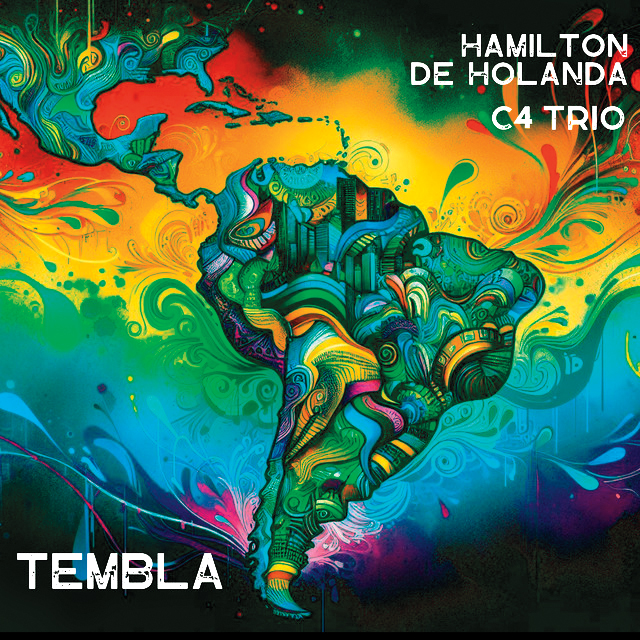
Tembla
by C4 Trio and Hamilton de Holanda
C4 Trio and Hamilton de Holanda, who were on the stage at Americas Society several years ago in their first New York appearances, are perhaps the continent’s most visible players of what you might call the small guitars category: the Venezuelan cuatro, the Brazilian bandolim, the Andean charango, and others. After sharing a table at the Latin Grammys in 2022, the Venezuelan group and the Brazilian soloist decided to work together, and the resulting album, Tembla, was recorded in Bogotá last year and released in May. It includes 10 classics from the Latin American songbook, along with original pieces, featuring a stellar roster of guests. “La tierra del olvido” is one of Carlos Vives’ early hits. This is an instrumental album, but this evocative version borrows the chorus from the original version, creating a brilliant contrast. If you are in New York, you can catch Héctor Molina, one of the members of C4, live at Americas Society in spring 2025.
Listen to this AQ Playlist on Spotify.


